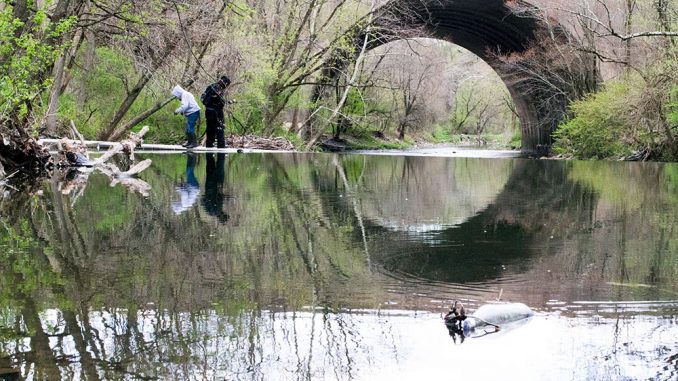
The William Penn Foundation awarded Temple’s Center for Sustainable Communities a $1.23 million grant to oversee the implementation of projects during a 10-year initiative aimed to improve the conditions of watersheds in the Philadelphia area.
Jeffrey Featherstone, director of the Center for Sustainable Communities, said the venture began with an invitation to participate in a preliminary process of developing plans for the Philadelphia watersheds.
The center put together a proposal that initially requested closer to $2 million for the grant. Additional funding was acquired from the National Fish and Wildlife Foundation, a conservation nonprofit based in Washington, D.C., to help protect wildlife and habitats. NFWF agreed to serve as a sponsor for projects that are a part of the William Penn initiative, Featherstone said.
The Delaware River watershed spans more than 13,500 square miles from upstate New York to where the Delaware Bay meets the Atlantic Ocean. It is a major source of drinking water for the Philadelphia area, as well as an important ecological feature for habitats in the Mid-Atlantic region.
The watershed also serves as a critical resource for economic enterprises and recreation to 15 million people living within its boundaries in New York, Pennsylvania, New Jersey, Delaware and parts of Maryland.
However, the watershed is threatened by deforestation, stormwater runoff and pollution from cities and farms.
Temple will be playing the lead role in monitoring what is known as the Upstream Suburban Philadelphia Cluster of watersheds. The center will oversee projects being constructed to restore the watershed, monitor and evaluate the water quality, supply and flow, as well as improving the computer models designed to simulate how watersheds work.
The team hopes to determine what level of improvements is needed in order to make a significant difference in the quality of the watershed.
“The major problem is that we’ve not done a very good job managing stormwater,” Featherstone said.
Stormwater runoff creates abundant issues for the watersheds, including flooding, problems with water quality, pollution and fish suffocating – all of which can lead to problems at water treatment plants.
Development over streams that flow into the greater watershed can force runoff to flow quickly over land, picking up hazardous waste and chemicals or contributing to erosion.
Patrick Starr, executive vice president of the Pennsylvania Environmental Council, said Temple has a history of creating stormwater management plans, and has a “deep knowledge” of the watersheds the team will be working in.
In addition to improving the water quality with this initiative, there will also be community outreach programs implemented. This includes the development of a citizen monitoring program designed to engage citizens in learning about the creeks in their backyards and communities, as well as to help them become more informed about water quality.
“We are also doing projects to improve environmental education,” Starr said.
This initiative will be a collaborative group effort by a number of groups, including Villanova University. At Temple, a number of people from different areas of expertise are working on the project, including Laura Toran of the earth and environmental science department and Ryan Roberts from the Engineering department.
“We have lots of faculty involved and graduate research assistance, so it’s kind of exciting,” Featherstone said.
During the 10-year period, CSC hopes to make significant improvements to the quality of the watersheds.
“I think there’s a lot of really good experience and expertise at Temple and everyone is recognizing their contributions,” Starr said.
Logan Beck can be reached at logan.beck@temple.edu.


Be the first to comment